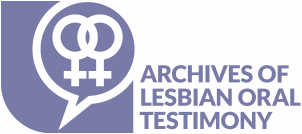Rebel Dykes: The Feminist Punk Outlaws of 1980s London
Rebel Dykes: The Feminist Punk Outlaws of 1980s London
Long before the Riot Grrls were the Rebel Dykes, a collection of queer, anarchist punks living in and around the London area. The Rebel Dykes created their own world that focussed on sex positivity, trans-inclusivity, and powerful feminism. The community's story is now being made into a full-length documentary feature film and we spoke with producer Siobhan Fahey about the Rebel Dykes journey.
What prompted you to start the Rebel Dykes project?
Back in the early 80s I moved to London and got involved with a whole load of different communities: outlaw dykes, squatters, sex workers and fetish scenes. I was hanging out with these different groups of friends throughout that time, I did lot of travelling and sex work, and then I got on with my life. But I never saw a book about us, or any articles or any anything - even after staying involved with queer activism, queer events, Ladyfest’s and quite political stuff. Lots of my friends were younger than me and they talk about the 80s as being very uptight and filled with second wave feminists who seem so different to themselves. Younger queers paint themselves from the riot girls in the 90s. And I kept saying no, there was loads of us fighting all of the stuff that you didn’t like back then in the 80s, doing sex positive stuff, being trans friendly and a lot of the stuff people that people believe today, we were fighting all those fights. I thought we’ve got to do something about this.
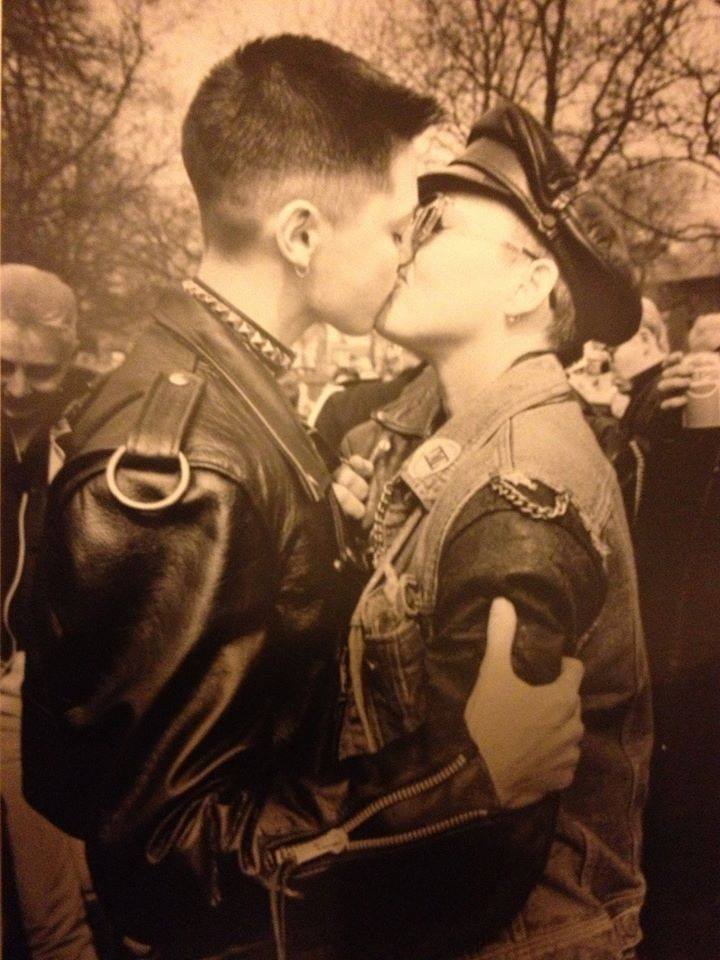
Wow. So how did the Rebel Dykes project evolve?
We had a LGBT history festival happening in Manchester and I said ‘I’m gonna do a presentation for that’. I went back to London and I did a big call out for people and women came from all over Britain with photographs and their stories. I sat there with a tape recorder and I did an oral history of everybody - including group and single interviews - and I learned loads of stuff from these women, stories I had never heard before. I realized that there was really something, you know? People were more exciting than I thought! There was a real narrative, a real beginning and end to the story, and people brought tonnes and tonnes of images. I went off and made a presentation and toured it around Britain for a while and then I went back to Manchester and spoke to some young filmmakers there and said “could I make this presentations into a short film?” Thinking we’ll stick it on YouTube. Then when they saw the material they wanted to make a proper full length feature documentary feature. That was two or three years ago. Of course, we said “yeah!” and that we have no money and that we’ve never made a feature film before. They were all filmmakers that had training. But none of us knew anything about it, we were just all working class, poor and struggling along and didn't really have a lot of money. We spent the summer going around the country out of our own pockets interviewing these Rebel Dykes. It's been a good few years now of collecting this archive of images, video, and music. The film is a work in progress so far which is about 25 minutes that we've shown it properly twice, once showed that at the LGBT Flare and once on the big screen in Manchester. There’s been a huge call for it and it’s a very exciting film.
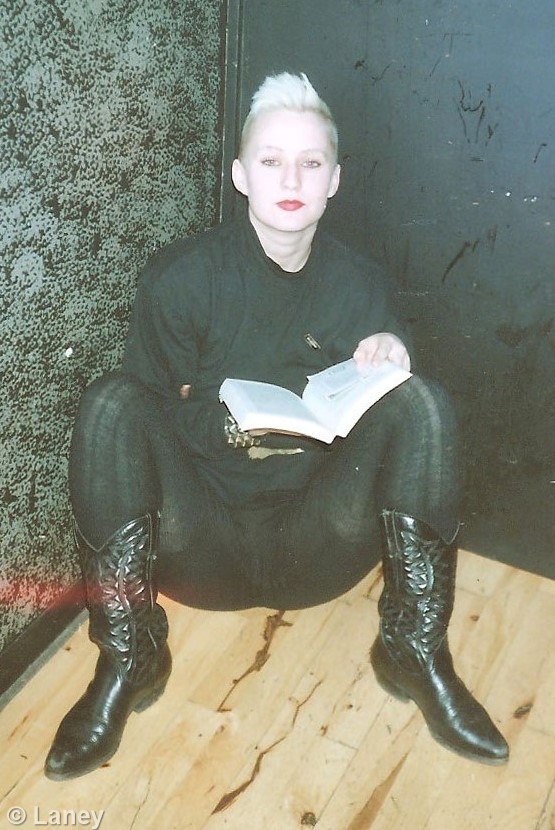
How you found the whole experience of taking oral history and then evolving it into a full blown documentary feature film?
It’s really, really exciting. None of us I think really realized how long it would take - we thought we’d all be done in a year! It’s about keeping the enthusiasm going, and that’s why we’re doing a crowd funder, to help fund the film. I’ve loved learning the skills it takes to be a producer and I would love to go off and study film after this.
Can you describe to us the Rebel Dykes community?
The 80s were an interesting time in Britain. We were coming out of the 70s and the country was still quite poor, even London which is somewhere that people around the world think of as incredibly wealthy, when actually the city was going through quite a hard time. Lots and lots of empty properties, and tonnes of unemployment. There are tonnes and tonnes of punks. We all have different coloured hair, wore leather jacket and all of that. We were all very, very young; 14, 15, 16 that sort of age. Early 20s, but all very young. We all a sort of bravery and enthusiasm.
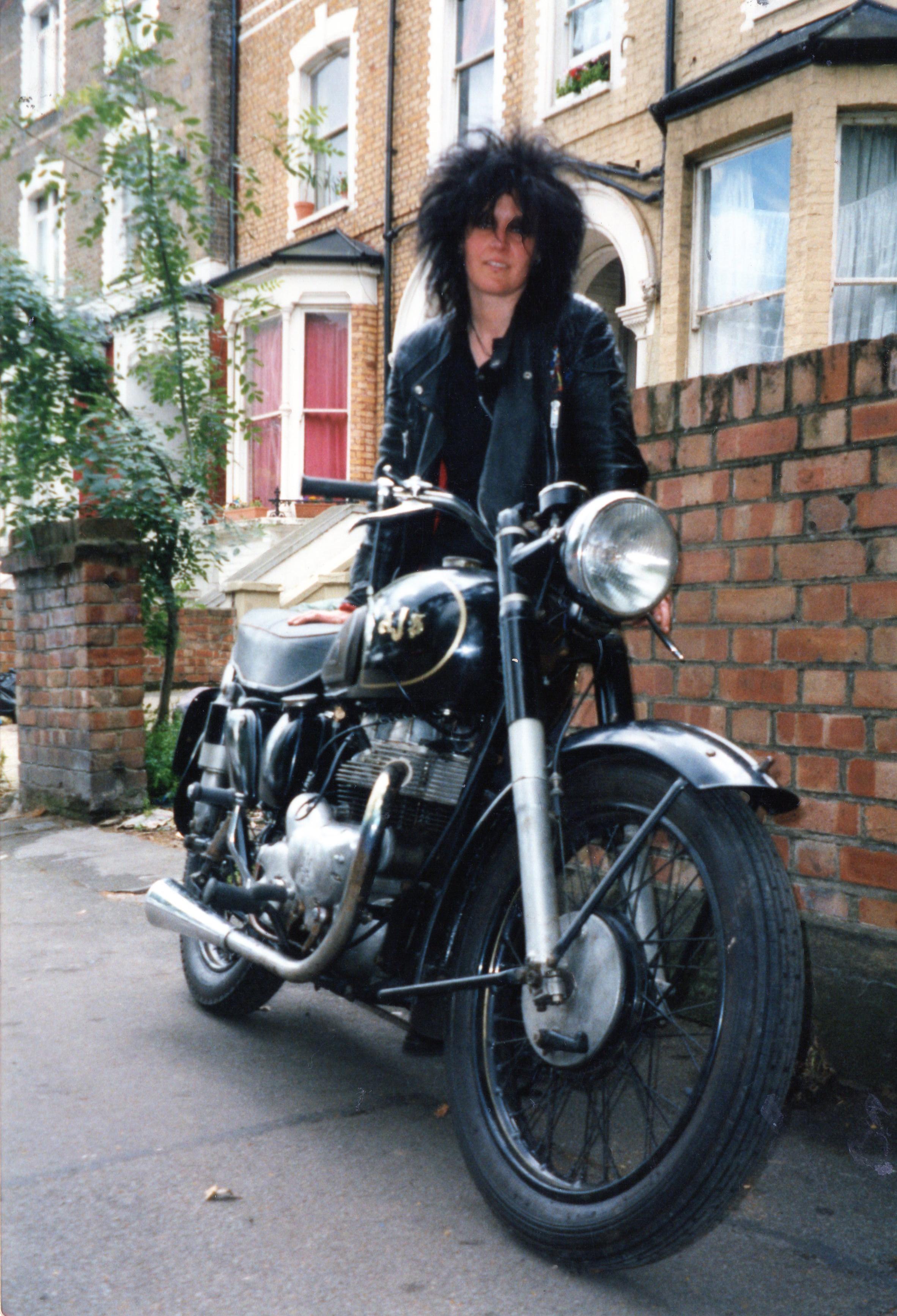
Being a lesbian in those days was really difficult. Most of us had been rejected by our families. That was a very common thing and so we created this other family of each other that was very tight. We didn't have much money. Nobody worked, everybody was signing on. Well, when I say we didn’t work we did actually work; we worked in jobs that we could do between the cracks, cash in hand. A lot of the women worked in manual trades and we were all in the sex industry. We all lived in squats. and I think homelessness is probably one of the most things that we had most in common. There was a lot of ethics about helping each other. We didn’t have much regard for the law and the laws of the land. We all had quite an anarchist outlook. I think in a way we weren’t long after the 70s and the hippie commune movement. We used to a lot of things communally: eat meals, run communal creches, bookshops. We were massively rejected by the feminists at the time because a lot of us were into fetish clubs and sex work. A lot of the of the older feminist really disapproved of us and would get quite angry with us. Often we weren’t allowed into feminist housing or feminist bars or buildings because of the way we dress. We had been rejected by both the other lesbians and by society. It was it made us all stick together.
How did the phrase Rebel Dyke come about?
The phrase Rebel Dyke was invented from my presentation because I’m tying together lots and lots of different sorts of outlaw women; the dykes, the anarchists, the fetish. All these people all knew each other; all these different groups of women. What was fascinating to me was that when I did my research, the one thing almost all women had in common was that they all started out at Greenham Common. All these outsiders gathered there, many of them to meet women, to meet lovers, because there wasn't many other ways to meet.
How do you think the Rebel Dykes were a catalyst for queer change in 80s London?
At the time we felt like we were losing, none of our history was written, and I think that was on purpose. I think we were written out of history by the women with the academic titles and the history books. But in a more real way I think we massively influenced because we were incredibly talented bunch and a lot of people were writing in magazines and the artists influenced a lot of the pop stars of the time: Madonna, Sinead O’Connor… their look was taken straight out of our look. We massively affected fashion. Some of the women went on and became joined some of the bands that set up Riot Grrl.
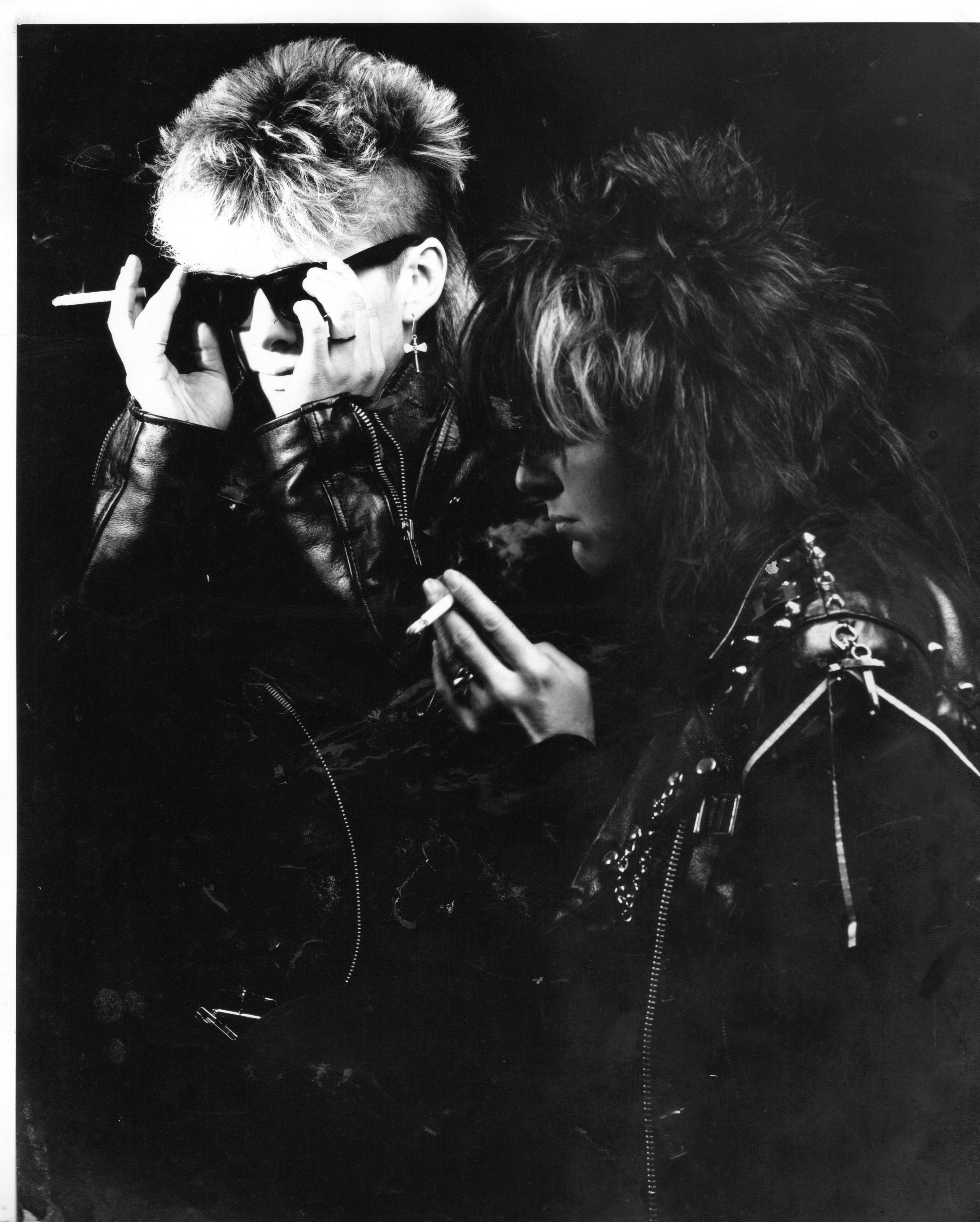
You talked a bit about why you thought the Rebel Dykes were eradicated from the history records. Can you tell us a bit more about why you think that was?
The woman who ran the lesbian archive at the time in London, Sheila Jefferies, who of course more recently has become known for her anti-trans work, but back then she hated us; the S&M dykes. A lot of the women's library’s at the time wouldn't let us into the building, and refused to stock anything of ours; the women’s bookshops wouldn’t stock our books and magazines. It's not an opinion, it’s a fact that we were written out of history. This is the first chance we've got to look back on the history. I think we have to do it now because sadly so many of us are dying. We live quite extreme lives and an awful lot to deaths have happened. I think we have to do it now.
Thinking about that, why then do you think it's important for lesbian and queer people to share their experiences and their story?
I've continued to work since then within different aspects of the queer world, and when I see these young, punk-y, queer, anarchist-y friends, to me they’re the same people as we were. It’s not about waves; it’s the same story. I think it gives people a lot of strength to know that these battles have been fought for many years. When I'm with the younger queers because I'm older, it gets assumed that I’m some old school feminist who’s going to judge everything. People need to know that there’s a lot more going on in the 1980’s than just that type of person. I did an event in London where we were shared lesbian erotic images from the 80s and 90s to a younger audience… and they were rapt! People were so excited and it was because they hadn’t seen anything like this before. I think one of the reasons is because young people really want to hear our experiences, see our experiences and learn. Sharing creates and opens up space for conversation. I think it’s very difficult to be queer today - a lot more difficult than it was in those days.
Why do you think that is?
It's so difficult to live now, to get housing - especially in London. There’s no community left because there’s nowhere for us to be. In the 80s we had squats, now we have nothing. To form communities and to work together in some ways if more difficult. I think that you we can each learn from each other and understand each other a bit more by listening. Do you have a story to share? Join ALOT and contribute to our oral history collection. Photos and images kindly provided courtesy of the Rebel Dykes team.

